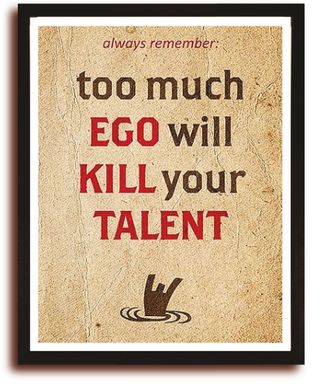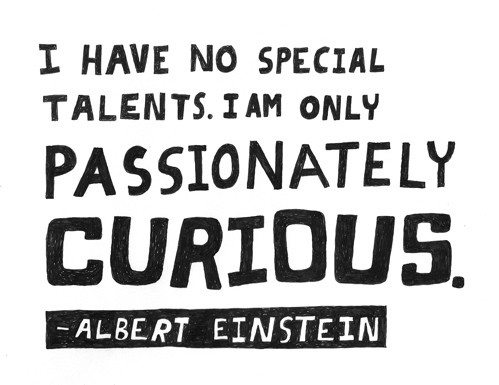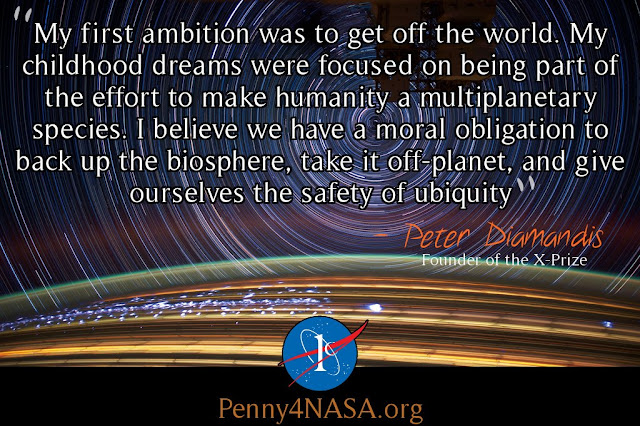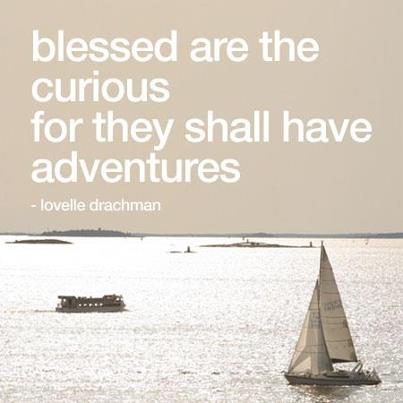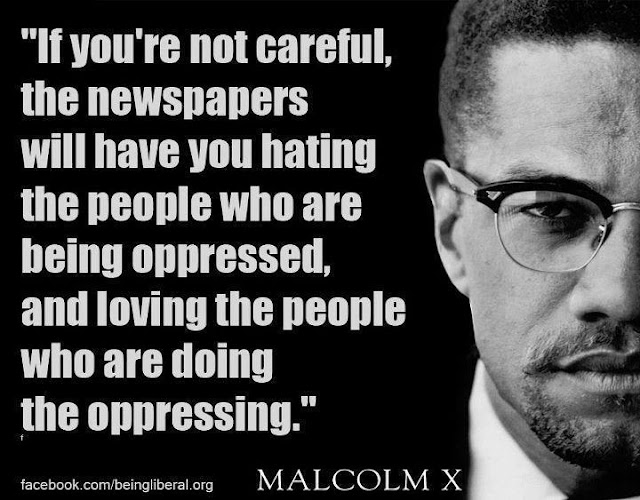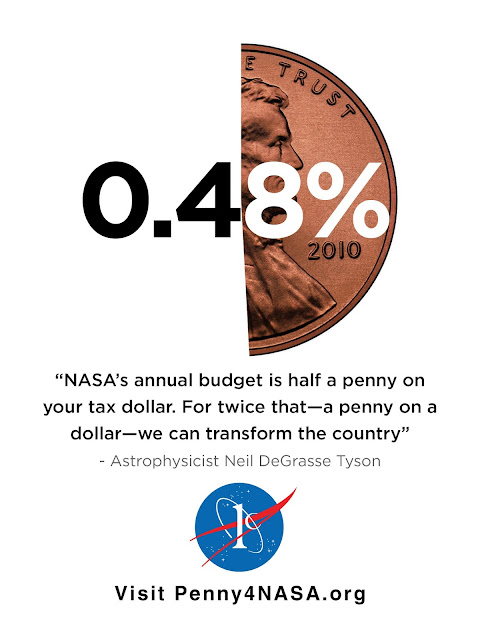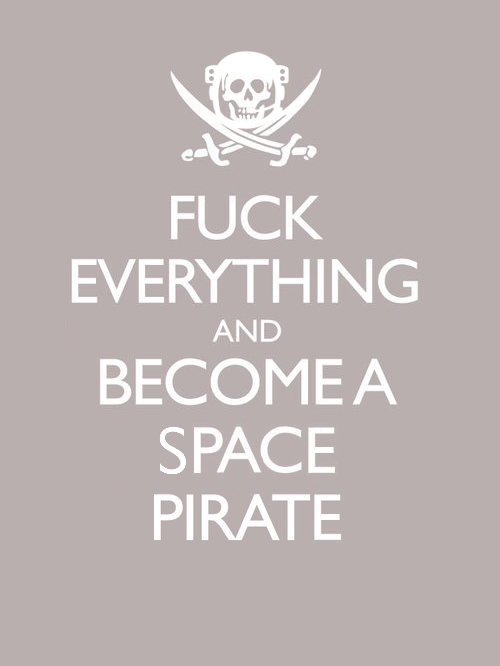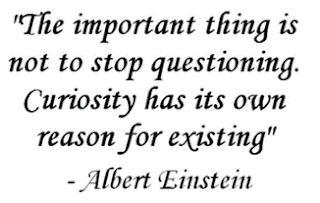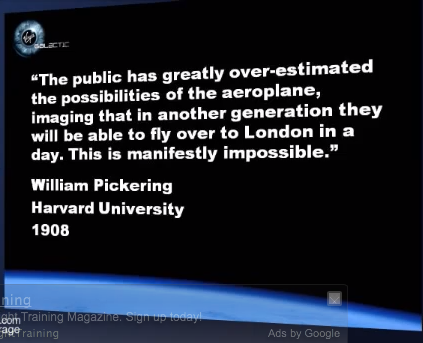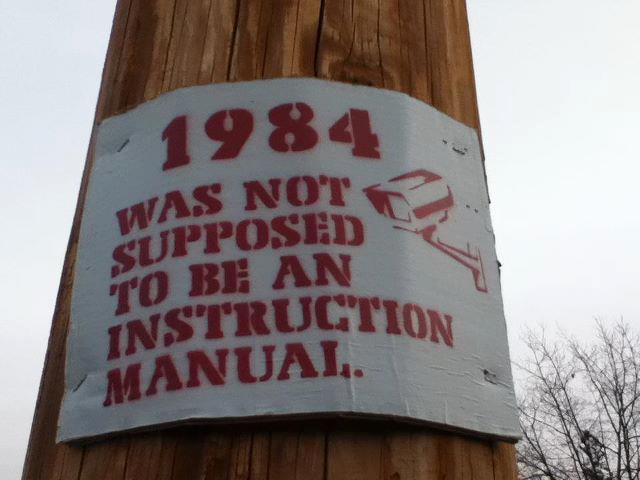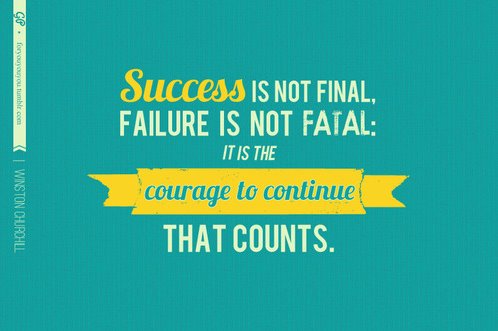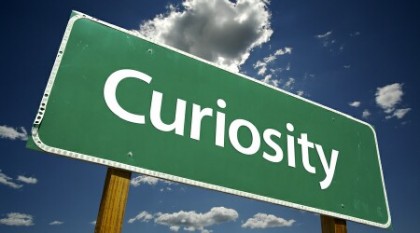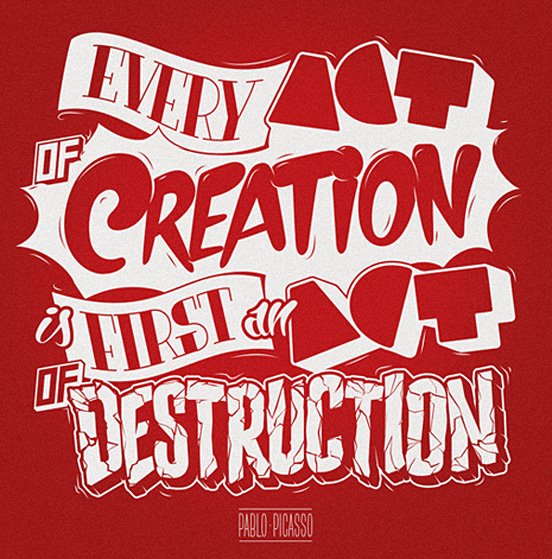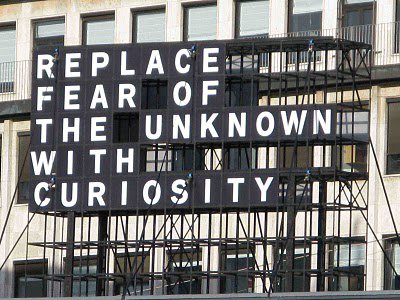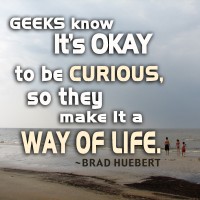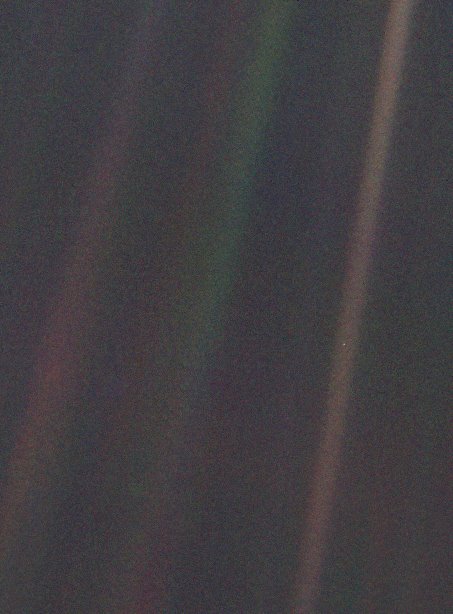“Never doubt that a small group of thoughtful, committed citizens can change the world.
Indeed, it is the only thing that ever has.”
Margaret Mead
“Security is mostly a superstition. It does not exist in nature, nor do the Children of Men as a whole experience it.
Avoiding danger is no safer in the long run than outright exposure.
Life is either daring adventure, or nothing.”
Helen Keller
“I think privately funded missions are the only way to go
to Mars with humans because I think the best way to go
is on “one-way” colonization flights and no government
will likely sanction such a risk.
The timing for this could well be within the next 20 years.
It will fall within the hands of a small group of tech billionaires
who view such missions as the way
to leave their mark on humanity.”
Peter Diamandis
“When we walk to the edge
of all the light we have
and take the step into the
darkness of the unknown,
we must believe that
one of two things will happen….
There will be something
solid for us to stand on
or we will be taught to fly. ”
Patrick Overton
“Men wanted for hazardous journey, small wages, and bitter cold, long months of complete darkness, constant danger,
safe return doubtful, honor and recognition in case of success.”
classified advertisement attributed to South Pole explorer Shackleton
“As you go the way of life, you will see a great chasm.
Jump. It is not as wide as you think.”
Native American Proverb
“We must sail sometimes with the wind and sometimes against it, but we must sail, and not drift, nor lie at anchor.”
Oliver Wendell Holmes
“The important thing is to start; to lay a plan, and then follow it step by step no matter how small
or large one by itself may seem.”
Charles Lindbergh
“The first responsibility of a leader is to define reality.”
Max De Pree
“When you change the way you look at things, the things you look at change.”
Wayne Dyer
“It is virtually an ironclad rule that existing enterprises project increasing capabilities linearly.”
Steve Jurvetson
“Vision without action is a daydream. Action without vision is a nightmare.”
Japanese proverb
“By logic and reason we die hourly, by imagination we live.”
Jonathan Butler Yeats
“Both those who wait for permission, or those who fear risk and wait for safety will also pay the consequences of their inaction:
They will live insignificant lives and die little deaths, waiting and fearing.
They will never see the stars, not even in their dreams.”
James and Alcestis Oberg. From: Pioneering Space
“Little minds are tame and subdued by misfortunes; but great minds rise above them”.
Washington Irving
“Now we have the capability to leave the planet, and I think we should give careful consideration to taking that option.
Man as always gone where he has been able to go, it is a basic satisfaction of his inquisitive nature,
and I think we all lose a little bit if we choose to turn our backs on further exploration. Exploration produces a mood in people,
a widening of interest, a stimulation of the thought process… Our universe should be explored by microscope and by telescope…
When man fails to push himself to the possible limits of his universe in a physical sense, I think it causes a mental
slackening as well, and we are all the poorer for it. Space is the only physical frontier we have left…”
Michael Collins, Apollo 11 Astronaut, Carrying the Fire
“One who fears failure limits his activities.
Failure is only the opportunity to begin again more intelligently”.
Henry Ford
“The credit belongs to the man who is actually in the arena; whose face is marred by dust and sweat and blood;
who strives valiantly; who errs and comes short again and again; who knows the great enthusiasms, the great devotions,
and spends himself in a worthy cause; who at the best knows in the end the triumph of high achievement;
and who at the worst, if he fails at least fails while daring greatly”.
Theodore Roosevelt
“The ‘Limits To Growth’ people see Earth as a life raft in hostile space. Hence, they see man’s world as a closed system —
restricted to Earth. I don’t. Humanity’s action world is no more closed than it is flat.”
Ehricke
“If you are looking for perfect safety, you will do well to sit on a fence and watch the birds;
but, if you really wish to learn to fly, you must mount a machine and become acquainted with its tricks and actual trials.”
Wilbur Wright, 1901
“Don’t tell me that man doesn’t belong out there.
Man belongs wherever he wants to go-and he’ll do plenty well when he gets there.”
Wernher Von Braun, 1958
“Ships and sails proper for the heavenly air should be fashioned.
Then there will also be people, who do not shrink from the vastness of space.”
Johannes Kepler to Galileo Galilei, 1609
“Use every letter you write, every conversation you have, every meeting you attend, to express your fundamental beliefs and dreams.
Affirm to others the vision of the world you want. You are a free, immensely powerful source of life and goodness.
Affirm it, spread it, radiate it, think day and night about it, and you will see a miracle happen: the Greatness of Your Own Life.”
Dr. Robert Mueller, Former U.N. Assistant Secretary General
“Ultimately we don’t really want 10,000 people on Mars……we want millions.”
Elon Musk
“This single individual completely changed something.
That’s the kind of thing people can do anywhere.
They can do it in Seattle; they can do it in North Dakota.”
Jeff Bezos
“The best writing advice I’ve ever heard: Don’t write like you went to college.”
Alice Kahn
“I myself would be disappointed if there is not a person on Mars within 20 years, and i hope it is closer to 10.”
Elon Musk
“Whatever you can do, or dream you can do, begin it.
Boldness has genius, power, and magic in it!”
William Hutchinson Murray, The Scottish Himalayan Expedition
“The future belongs to those who believe in the beauty of their dreams.”
Eleanor Roosevelt
“I would rather be governed by the first two thousand people in the Boston telephone directory
than by the two thousand people on the faculty of Harvard University.”
William Buckley, Jr.
“The more laws and restrictions there are,
The poorer people become.
The sharper men’s weapons,
The more trouble in the land.
The more ingenious and clever men are,
The more strange things happen.
The more rules and regulations,
The more thieves and robbers.”
Tao Te Ching # 57
(written 2,500 years ago)
“From bondage to spiritual faith.
From faith to great courage.
From courage to liberty.
From liberty to abundance.
From abundance to complacency.
From complacency to selfishness.
From selfishness to apathy.
From apathy to dependency.
And from dependency back again into bondage.”
Thomas MacCauley, 1857
“…to the frontier the American intellect owes its striking characteristics. That coarseness of strength combined with acuteness and inquisitiveness; that practical, inventive turn of mind, quick to find expedients; that masterful grasp of material things, powerful to effect great ends; that restless, nervous energy; that dominant individualism, working for good and evil, and withal that buoyancy and exuberance that comes from freedom. People of the United States have taken their tone from the incessant expansion. He would be a rash prophet who should assert that the expansive character of American life has now entirely ceased. Movement has been its dominant fact, and, unless this training has no effect upon a people, the American energy will continually demand a wider field for its exercise. But never again will such gifts of free lands offer themselves. Each frontier did indeed furnish a new opportunity, a gate of escape from the bondage of the past; and freshness, and confidence, and scorn of older society, impatience of its restraints and its ideas, and indifference to its lessons, have accompanied the frontier. What the Mediterranean Sea was to the Greeks, breaking the bonds of custom, offering new experiences, calling out new institutions and activities, that, and more, the ever retreating frontier has been to the United States directly, and to the nations of Europe more remotely. And now, five centuries from the discovery of America, at the end of two hundred years of life under the Constitution, the frontier has gone, and with its going has closed the first period of American history.”
Lecture given by a 19th Century Historian form the University of Wisconsin.
“This proposition being make publike and coming to the scanning of all, it raised many variable opinions amongst men, and caused many fears and doubts amongst themselves. Some, from their reasons and hops conceived, laboured to stiff up and incourage the rest to undertake and prosecute the same; others, againe, out of their fears, objected against it, and sought to diverte from it, aledging many things, and those neither unreasonable nor unprobable; as that it was a great designe, and subjecte to many unconceivable perills and dangers […] It was answered that all great and honorable actions are accompanied with great difficulties, and must be both enterprised and overcome with answerable courages.”
Gov. William Bradford, Of Plimoth Plantation, 1621.
“Dream strange things and make them look like truth.”
Nathaniel Hawthorne
“Why join the navy if you can be a pirate?”
Steve Jobs
“Only God gets things right the first time.”
Stephen King
“It’s getting easier and easier to do amazing things from wherever you happen to be in the world.
You can physically be anywhere as you do it, and you can affect the entire world with what you build.”
Jeff Bezos
“So many suns, so many earths, and every one of them flock’d with so many herbs, trees and animals,
and adorned with so many seas and mountains!”
Christian Huygens, 1698
“When I stretch my Imagination thro’ and beyond our system of planets, beyond the visible fix’d stars themselves,
into that space that is every way infinite, and conceive it fill’d with suns like ours, each with a chorus of worlds for ever moving round him,
then this little ball on which we move seems . . . to be almost nothing.”
Benjamin Franklin, 1728
“Celestial bodies which are not yet inhabited will be hereafter,
when their development has reached a later stage.”
Immanuel Kant, 1755
“The moon, it turns out, is a great place for men. One-sixth gravity must be a lot of fun, and when Armstrong and Aldrin went into their bouncy little dance, like two happy children, it was a moment not only of triumph but of gaiety. The moon, on the other hand, is a poor place for flags. Ours looked stiff and awkward, trying to float on the breeze that does not blow. (There must be a lesson here somewhere.) It is traditional, of course, for explorers to plant the flag, but it struck us, as we watched with awe and admiration and pride, that our two fellows were universal men, not national men, and should have been equipped accordingly. Like every great river and every great sea, the moon belongs to none and belongs to all. It still holds the key to madness, still controls the tides that lap on shores everywhere, still guards the lovers who kiss in every land under no banner but the sky. What a pity that in our moment of triumph we did not forswear the familiar Iwo Jima scene and plant instead a device acceptable to all: a limp white handkerchief, perhaps, symbol of the common cold, which, like the moon, affects us all, unites us all.”
E. B. White, July 26, 1969
Dream crushers
“Airplanes are interesting toys but of no military value.”
Marechal Ferdinand Foch, Professor of Strategy, Ecole Superieure de Guerre
“Heavier-than-air flying machines are impossible.”
Lord Kelvin, president, Royal Society, 1895
“Man will never reach the moon regardless of all future scientific advances.”
Dr. Lee DeForest, Inventor of TV
“There is no likehood man can ever tap the power of the atom.”
Robert Millikan, Nobel Prize in Physics, 1923
“Computers in the future may weigh no more than 1.5 tons.”
Popular Mechanics, forecasting the relentless march of science, 1949
“I think there is a world market for maybe five computers.”
Thomas Watson, chairman of IBM, 1943
“I have traveled the length and breadth of this country and talked with the best people,
and I can assure you that data processing is a fad that won’t last out the year.”
The editor in charge of business books for Prentice Hall, 1957
“If I had thought about it, I wouldn’t have done the experiment.
The literature was full of examples that said you can’t do this.”
Spencer Silver on the work that led to the unique adhesives for 3-M “Post-It” Notepads
“So we went to Atari and said, ‘Hey, we’ve got this amazing thing, even built with some of your parts,
and what do you think about funding us? Or we’ll give it to you. We just want to do it. Pay our salary, we’ll come work for you.’
And they said, ‘No.’ So then we went to Hewlett-Packard, and they said, ‘Hey, we don’t need you. You haven’t got through college yet.'”
Steve Jobs on attempts to get Atari and H-P interested in his and Steve Wozniak’s personal computer
“Professor Goddard does not know the relation between action and reaction and the need to have something better than
a vacuum against which to react. He seems to lack the basic knowledge ladled out daily in high schools.”
1921 New York Times editorial about Goddard’s work.
“Drill for oil? You mean drill into the ground to try and find oil? You’re crazy.”
Drillers who Edwin L. Drake tried to enlist to his project to drill for oil
in 1859
“Stocks have reached what looks like a permanently high plateau.”
Irving Fisher, Professor of Economics, Yale University, 1929
“Everything that can be invented has been invented.”
Charles H. Duell, Commissioner, U.S. Office of Patents, 1899
“Louis Pasteur’s theory of germs is ridiculous fiction”.
Pierre Pachet, Professor of Physiology at Toulouse, 1872
“The abdomen, the chest, and the brain will forever be shut from the intrusion of the wise and humane surgeon”.
Sir John Eric Ericksen, British surgeon, appointed Surgeon-Extraordinary to Queen Victoria 1873
“640K ought to be enough for anybody.”
Bill Gates, 1981
“But what… is it good for?”
Engineer at the Advanced Computing Systems Division of IBM, 1968, commenting on the microchip.
“There is no reason anyone would want a computer in their home.”
Ken Olson, president, chairman and founder of Digital Equipment Corp., 1977
“This ‘telephone’ has too many shortcomings to be seriously considered as a means of communication.
The device is inherently of no value to us.”
Western Union internal memo, 1876
“The wireless music box has no imaginable commercial value. Who would pay for a message sent to nobody in particular?”
David Sarnoff’s associates in response to his urgings for investment in the radio in the 1920s.
“The concept is interesting and well-formed, but in order to earn better than a ‘C,’ the idea must be feasible.”
A Yale University management professor in response to Fred Smith’s paper proposing reliable overnight delivery service.
(Smith went on to found Federal Express Corp.)
“Who the hell wants to hear actors talk?”
H.M. Warner, Warner Brothers, 1927
“We don’t like their sound, and guitar music is on the way out.”
Decca Recording Co. rejecting the Beatles, 1962
Human Survival
“Since, in the long run, every planetary civilization will be endangered by impacts from space, every surviving civilization
is obliged to become spacefaring–not because of exploratory or romantic zeal, but for the most practical reason imaginable: staying alive…
If our long-term survival is at stake, we have a basic responsibility to our species to venture to other worlds.”
Carl Sagan, Pale Blue Dot, 1994
“I don’t think the human race will survive the next thousand years, unless we spread into space.
There are too many accidents that can befall life on a single planet. But I’m an optimist. We will reach out to the stars.”
Stephen Hawking, interview with Daily Telegraph, 2001
“Let me end with an explanation of why I believe the move into space to be a human imperative. It seems to me obvious in too many ways to need listing that we cannot much longer depend upon our planet’s relatively fragile ecosystem to handle the realities of the human tomorrow. Unless we turn human growth and energy toward the challenges and promises of space, our only other choice may be the awful risk, currently demonstrable, of stumbling into a cycle of fratricide and regression which could end all chances of our evolving further or of even surviving.”
Gene Roddenberry, Planetary Report Vol. 1, 1981
“The Earth is just too small and fragile a basket for the human race to keep all its eggs in.”
Robert Heinlein, speech
“Today the human race is a single twig on the tree of life, a single species on a single planet. Our condition can thus only be described as extremely fragile, endangered by forces of nature currently beyond our control, our own mistakes, and other branches of the wildly blossoming tree itself. Looked at this way, we can then pose the question of the future of humanity on Earth, in the solar system, and in the galaxy from the standpoint of both evolutionary biology and human nature. The conclusion is straightforward: Our choice is to grow, branch, spread and develop, or stagnate and die.”
Robert Zubrin, Entering Space, 1999
“The question to ask is whether the risk of traveling to space is worth the benefit. The answer is an unequivocal yes, but not only for the reasons that are usually touted by the space community: the need to explore, the scientific return, and the possibility of commercial profit. The most compelling reason, a very long-term one, is the necessity of using space to protect Earth and guarantee the survival of humanity.”
William E. Burrows, The Wall Street Journal, 2003
“In time, [a Martian] colony would grow to the point of being self- sustaining. When this stage was reached, humanity would have a precious insurance policy against catastrophe at home. During the next millennium there is a significant chance that civilization on Earth will be destroyed by an asteroid, a killer plague or a global war. A Martian colony could keep the flame of civilization and culture alive until Earth could be reverse- colonized from Mars.”
Paul Davies, The New York Times, 2004
“We must turn our guns away from each other and outwards, to defend the Earth, creating a global and in space network of sensors and telescopes to find asteroids that could destroy our planet and create the systems to stop them. It makes no sense to dream great dreams while waiting to be hit by a train.”
Buzz Aldrin and Rick Tumlinson, Ad Astra Online, 2006
“There are so many benefits to be derived from space exploration and exploitation; why not take what seems to me the only chance of escaping what is otherwise the sure destruction of all that humanity has struggled to achieve for 50,000 years?”
Isaac Asimov, speech at Rutgers University
“Knowing what we know now, we are being irresponsible in our failure to make the scientific and technical progress we will need for protecting our newly discovered severely threatened and probably endangered species–us. NASA is not about the ‘Adventure of Human Space Exploration,’ we are in the deadly serious business of saving the species. All Human Exploration’s bottom line is about preserving our species over the long haul.”
Astronaut John Young,”The Big Picture”
“Space travel leading to skylife is vital to human survival, because the question is not whether we will be hit by an asteroid, but when. A planetary culture that does not develop spacefaring is courting suicide. All our history, all our social progress and growing insight will be for nothing if we perish. No risk of this kind, however small it might be argued to be, is worth taking, and no cost to prevent it is too great. No level of risk is acceptable when it comes to all or nothing survival.”
Gregory Benford and George Zebrowski, Skylife, 2000
“The dinosaurs became extinct because they didn’t have a space program.
And if we become extinct because we don’t have a space program, it’ll serve us right!”
Larry Niven, quoted by Arthur Clarke in interview at Space.com, 2001
“Colonization means potential immortality for the human genus. Man’s safety on Earth was never great, and it dwindles hourly. Disarmament, even world government, will not guarantee survival in an age when population presses natural resources to the limit and when the knowledge of how to work mischief on a planetary scale is ever more widely diffused among peoples who may grow ever more desperate.”
Poul Anderson, Is There Life on Other Worlds?, 1963
“Space exploration must be undertaken not only out of simple human curiosity but also to further the survival of the species. The twentieth century has seen the unprecedented development and proliferation of magnificent technologies. Many of them, through design, ignorance, or misuse, are capable of destroying life as well as enhancing it. Space exploration alone holds the promise of eventual escape from a dying planet, provided we wisely manage our resources in the meantime and actually survive that long.”
Astronaut Edgar Mitchell, The Way of the Explorer, 1996
“I would not see our candle blown out in the wind. It is a small thing, this dear gift of life handed us mysteriously out of immensity. I would not have that gift expire… If I seem to be beating a dead horse again and again, I must protest: No! I am beating, again and again, living man to keep him awake and move his limbs and jump his mind… What’s the use of looking at Mars through a telescope, sitting on panels, writing books, if it isn’t to guarantee, not just the survival of mankind, but mankind surviving forever!”
Ray Bradbury, Mars and the Mind of Man, 1971
“If the human species, or indeed any part of the biosphere, is to continue to survive, it must eventually leave the Earth and colonize space. For the simple fact of the matter is, the planet Earth is doomed… Let us follow many environmentalists and regard the Earth as Gaia, the mother of all life (which indeed she is). Gaia, like all mothers, is not immortal. She is going to die. But her line of descent might be immortal… Gaia’s children might never die out–provided they move into space. The Earth should be regarded as the womb of life–but one cannot remain in the womb forever.”
Frank Tipler, The Physics of Immortality, 1994
“If humanity persists and endures, in time we will come face to face with the evolution of our sun. In a few billion years its slow brightening will speed up as it swells into a red giant. Earth will then be uninhabitable, as will the inner regions of the Solar System. Yet there will be other more clement stars to which our descendents may wish to migrate. Certainly a society that has developed space flight and space colonization will have the advantage of never thereafter having to stand hostage to fortune.”
T. A. Heppenheimer, Toward Distant Suns, 1979
“If [the earth] goes, we go. And so we should go elsewhere, so that when the earth goes, we have another place to go. And while we’re at it, we should take our pets and plants, too. We wouldn’t want to be without them, just as they wouldn’t want to be without us–even if they don’t know it. It’s our job to know things, and to act accordingly. And if we fail at that mission, then we really will have failed in upholding our end of the Burkean bargain–that is, partnering not only with the living and the dead, but with those who are yet to be born.”
James Pinkerton, “The Ultimate Lifeboat,” TCS Daily, 2006
“In the long run, a single-planet species will not survive.
One day, I don’t know when, but one day, there will be more humans living off the Earth than on it.”
NASA director Mike Griffin, quoted in “Mars or Bust,” Rolling Stone, 2006
“Remember this: once the human race is established on more than one planet and especially,
in more than one solar system, there is no way now imaginable to kill off the human race.”
Robert Heinlein, speech at World Science Fiction Convention, 1961
“Our population and our use of the finite resources of planet Earth are growing exponentially, along with our technical ability to change the environment for good or ill. But our genetic code still carries the selfish and aggressive instincts that were of survival advantage in the past. It will be difficult enough to avoid disaster in the next hundred years, let alone the next thousand or million. Our only chance of long term survival, is not to remain inward looking on planet Earth, but to spread out into space.”
Stephen Hawking, video at Big Think, August 2010
Settle space to preserve Earth…
“It may be quite possible to bring rare species of birds and animals from Earth to the nonagricultural areas, and to have them survive and flourish. Every step toward the settlement of space will benefit conservation programs in another way: by relieving Earth of industry and of its burden of population, so that the species of animals, birds and fish now in danger on Earth will have a better chance of survival here.”
Gerard K. O’Neill’s “The High Frontier”, p. 81
“The most important fact of this century is not that Earth is threatened in many ways,
It is that for the first time in all of its history a decisive means of protecting the home planet exists. It is by using space.”
William E. Burrows, The Survival Imperative, 2006
“Many of the problems that we have today may not have solutions on Earth. The solutions may lie only in leaving the planet behind.
There’s no way we can avoid tearing up the countryside for ores, for fuel, for raw materials here on Earth–short of everybody dying off.”
Keith and Carolyn Henson in Worlds Beyond, ed. New Dimensions Foundation, 1978
“A nonindustrial Earth with a population of perhaps one billion people could be far more beautiful that it is now. Tourism from space could be a major industry, and would serve as a strong incentive to enlarge existing parks, create new ones, and restore historical sights. […] The vision of an industry-free, pastoral Earth, with many of its spectacular scenic areas reverting to wilderness, with bird and animal populations increasing in number, and with a relatively small, affluent human population, is far more attractive to me than the alternative of a rigidly controlled world whose people tread precariously the narrow path of steady-state society.”
Gerard K. O’Neill’s “The High Frontier”, pp. 263-4
“Clearly our first task is to use the material wealth of space to solve the urgent problems we now face on Earth: to bring the poverty-stricken segments of the world up to a decent living standard, without recourse to war or punitive action against those already in material comfort; to provide for a maturing civilization the basic energy vital to its survival.”
Gerard O’Neill, The High Frontier, 1976
“People who view industrialization as a source of the Earth’s troubles, its pollution, and the desecration of its surface, can only advocate that we give it up. This is something that we can’t do; we have the tiger by the tail. We have 4.5 billion people on Earth. We can’t support that many unless we’re industrialized and technologically advanced. So, the idea is not to get rid of industrialization but to move it somewhere else. If we can move it a few thousand miles into space, we still have it, but not on Earth. Earth can then become a world of parks, farms, and wilderness without giving up the benefits of industrialization.”
Isaac Asimov, speech at Rutgers University
“It may be argued that the exploration and the settlement of space is no more than a “technological fix” for problems that should be solved on a higher, more intellectual plane. Yet by our evolution we are closely tied to the material world: we are the descendants of the survivors, from many generations during which the maintenance of life was a struggle every day with the material world. Our history does not suggest that we are well-suited to changing, overnight, to a species disinterested in material well-being, with paramount concern for humanity as a whole rather than for a narrower group. Indeed, our loyalties are first to those few individuals to whom we are linked by close ties of genetic relationship; only with effort do we extend our concern to the town, the state, the nation, and the world. As a species, we have solved our problems by technical means for millennia, and it would be surprising indeed if we could change our character so completely as to abandon the methods by which we have survived.”
Gerard K. O’Neill’s “The High Frontier”, p. 273
“If Earth is considered a closed system, there will be less for all forever. The frontier is closed, the wilderness is gone, nature is being destroyed by human consumers, while billions are starving. The future indeed looks grim, and there are, ultimately, no really long-range, positive solutions, nor motivation for making the sacrifices and doing the hard work needed now, unless we understand that we are evolving from an Earth-only toward an Earth-space or universal species.”
Barbara Marx Hubbard, Distant Star, 1997 (Electronic Magazine of the First Millennial Foundation)
“One of the most thoughtless statements, parroted ad nauseam ever since rational concern for our environment exploded into an emotional syndrome, calls Man the only animal that soils its own nest. Every animal soils its nest with the products of its metabolism if unable to move away. Space technology gives us for the first time the freedom to leave our nest, at least for certain functions, in order not to soil it.”
Krafft Ehricke, “Extraterrestrial Imperative” in Bulletin of the Atomic Scientists, 1971
“There are three reasons why, quite apart from scientific considerations, mankind needs to travel in space. The first reason is garbage disposal; we need to transfer industrial processes into space so that the earth may remain a green and pleasant place for our grandchildren to live in. The second reason is to escape material impoverishment: the resources of this planet are finite, and we shall not forego forever the abundance of solar energy and minerals and living space that are spread out all around us. The third reason is our spiritual need for an open frontier.”
Freeman Dyson, Disturbing the Universe, 1979
“As long as there is the safety valve of unexplored frontiers, the aggressive and exploitive urges of human beings can be channeled into long-term possibilities and benefits. But as those frontiers close down, and people begin to turn in upon themselves, that jeopardizes the democratic fabric itself. I don’t happen to think the frontier is closed. It’s just opening up in space… The human race is going out and throughout, wherever space will permit us to go. It’s only a question of when, and who, and what kind of leadership will take us there. And I, for one, don’t think we ought to be looking just down here below.”
Governor Jerry Brown, remarks at a symposium, 1977
“Even the beginning of realization of that vision will bring profound benefits of realization of that vision will bring profound benefits to our planet and its life: The sure survival of all the races of humanity, and of the plant and animal life forms we cherish as part of our Earthly heritage, in colonies dispersed throughout our solar system and beyond it. The preservation of the Earth and its fragile biosphere, as a place of great beauty, deserving our care and our nurturing, as it has nurtured us through our evolution. Opening a hopeful future for individual human beings, with increasing personal and political freedoms, a wider range of choices, and greater opportunities to develop individual potentials. Reducing the incidence of wars and the constant threat of wars, by opening a new frontier with virtually unlimited new lands and new wealth.”
Gerard K. O’Neill’s “The High Frontier”, p. 326
“The possible advantages of [space colonization] are many and not to be taken lightly. In theory many of humanity’s most environmentally destructive activities could be removed from the biosphere entirely. The population density of the Earth could be reduced, and a high quality of life could be provided to all Homo sapiens. It might even make war obsolete… Environmentalists often accuse politicians of taking too short-term a view of the human predicament. By prematurely rejecting the idea of space colonies they would be making the same mistake.”
Paul Ehrlich in Space Colonies, ed. Steward Brand, 1977
“Any hostility that some environmentalists have shown toward space projects arises from the intense sense of responsibility to focus on the needs of the planet. They have not come to appreciate–and hardly anyone has–that the long-term health of this world requires that we also develop the capacity to leave it in large numbers. So this is our dual responsibility to the planet that gave us our existence: to protect her and to spread her seeds. It’s actually very simple and obvious if you think about it. Both activities are equally essential to maintain the balance of life. Now that we are mature, we must begin to take these responsibilities very seriously.”
Steven Wolfe, “Space Settlement: The Journey Within,” presented at National Space Society conference, 2004
“We of course have our problems, to say the least, in comportment towards ourselves and our environment, but admittance to the cosmos and the spatial infinity and temporal immortality it provides may well be just the remedy for these age-old problems. Access to the boundless resources of the universe may once and for all puncture the pressure of population and politics of scarcity which have generated war, oppression, and plagued our species from the start.”
Paul Levinson, “Technology as the Cutting Edge of Cosmic Evolution,” presented at AAAS annual meeting, 1984
“The penetration of humankind into the universe, into its study and mastery, is not an expression of the inability of human beings to grapple with earthly difficulties and problems, not flight from them, but a qualitatively new and often even unique, irreplaceable means of solving many of the most important tasks of science, technology and the economy.”
A. D. Ursul, “The Human Being and the Universe” in Soviet Studies in Philosophy, 1978
“Many, and some of the most pressing, of our terrestrial problems can be solved only by going into space. Long before it was a vanishing commodity, the wilderness as the preservation of the world was proclaimed by Thoreau. In the new wilderness of the Solar System may lie the future preservation of mankind.”
Arthur C. Clarke, “What Is to Be Done?” in Bulletin of the Atomic Scientists, 1992
“The frontier in space, embodied in the space colony, is one in which the interactions between humans and their environment is so much more sensitive and interactive and less tolerant of irresponsibility than it is on the whole surface of the Earth. We are going to learn how to relate to the Earth and our own natural environment here by looking seriously at space colony ecologies.”
Astronaut Rusty Schweickart in L-5 News, 1977
“The study of space societies may have a big dividend for Earth…. Inquiry into the rules that should govern societies in space is likely to provide fresh insights into the governance of societies here on Earth, a field in which, to judge by current events, there is certainly room for progress. This is particularly true because many of the most salient characteristics of space societies, such as strong dependence on sophisticated technology, problems with maintaining environmental quality, the need for people to work together smoothly under stress in close quarters, and the dependence of inhabitants on their society for basic necessities just as food, water, air, and communications, are in many ways simply exaggerations of characteristics already present (and growing) in Earth societies. By studying the problem of space societies we gain a window into not just their future, but our own.”
Supreme Court Justice William Brennan, speech at conference of Judges of U.S. Court of Appeals, 1988
“Despite the campaign rhetoric, the bureaucracies–big business and big government–are here to stay. The centralization effort cannot be checked, but it can be rationally directed towards our species goal: Space Migration, which in turn offers the only way to re-attain individual freedom of space-time and the small-group social structures which obviously best suit our nervous systems. It is another paradox of neuro-genetics that only in space habitats can humanity return to the village life and pastoral style for which we all long.”
Timothy Leary, Neuropolitics, 1977
“We must open the frontier to expand this grand experiment called freedom, because without an arena to feed and nurture the ideals of liberty, individual choice and the right to do and be whatever you want they may well perish from the Earth. We must open the frontier because without an edge to our packed culture of individuals, nurturing and then bringing in new ideas and giving release to bad ones, the center comes apart. We must open the frontier to find and create new wealth for humanity, because everyone in the world deserves the chance to have the same fine house, fine cars, and good life you can potentially have, and this planet alone simply cannot provide support that, unless you give up yours (and someone, sometime will try and make you do so). We open the frontier to help save the planet we love from the ravages caused by our ever growing numbers and our hunger for new forms of energy, materials and products. Finally, and most importantly, we must open the frontier as humans to survive as a species and to protect our precious biosphere from destruction by the forces of the universe or ourselves by making it redundant.”
Rick Tumlinson, Testimony to a Senate Committee, 2003
“For the environmentalists, The Space Option is the ultimate environmental solution. For the Cornucopians, it is the technological fix that they are relying on. For the hard core space community, the obvious by-product would be the eventual exploration and settlement of the solar system. For most of humanity however, the ultimate benefit is having a realistic hope in a future with possibilities…. If our species does not soon embrace this unique opportunity with sufficient commitment, it may miss its one and only chance to do so. Humanity could soon be overwhelmed by one or more of the many challenges it now faces. The window of opportunity is closing as fast as the population is increasing…. Our future will be either a Space Age or a Stone Age.”
Arthur Woods and Marco Bernasconi, Space News, 1995
Settle space to eliminate war…
“It is the hope of those who work toward the breakout from planet Earth that the establishment of permanent, self-sustaining colonies of humans off-Earth will … make human life forever unkillable, removing it from the endangered species list, where it now stands on a fragile Earth overarmed with nuclear weapons. Second, the opening of virtually unlimited new land areas in space will reduce territorial pressures and therefore diminish warfare on Earth itself.”
Gerard O’Neill, Foreword to The Overview Effect, by Frank White, 1981
“Unless people can see broad vistas of unused resources in front of them, the belief in limited resources tends to follow as a matter of course. And if the idea is accepted that the world’s resources are fixed, then each person is ultimately the enemy of every other person, and each race or nation is the enemy of every other race or nation. The extreme result is tyranny, war and even genocide. Only in a universe of unlimited resources can all men be brothers.”
Robert Zubrin, The Case for Mars, 1996
“The prospective colonization of space responds, not to the particular problems of the American nation, or of any other nation, but to those of mankind as a whole… In an ideal view, such an undertaking by mankind as a whole would tend to divert it from its present preoccupation with international conflict, would tend to channel its energies into the pursuit of a great common purpose.”
Louis J. Halle in Foreign Affairs, 1980
“The crossing of space … may do much to turn men’s minds outwards and away from their present tribal squabbles. In this sense, the rocket, far from being one of the destroyers of civilisation, may provide the safety-value that is needed to preserve it.”
Arthur C. Clarke, The Exploration of Space, 1951
“War and space exploration are alternative uses of the assertive, exploratory energies that are so characteristic of human beings. They may also be mutually exclusive because if one occurs on a massive scale, the other probably will not.”
Frank White, The Overview Effect, 1981
“Man is so made that he can progress only when challenged. If sociological advance were to make war impossible before a planet’s technology was sufficiently developed, the people of that planet would never achieve the means to expand to other worlds. If they waited for overpopulation to confront them, it would be too late; they’d either become the victims of mass starvation and chaos, or would resort to ruthless, planned killing without the ‘excuse’ of war, followed by an irreversible decadence. But the fuse is necessarily short. The technology, once achieved, must be used for expansion; otherwise the tendency toward war outlives its purpose and results in inescapable disaster.”
Sylvia Engdahl, The Far Side of Evil, 1971
“Every civilization [in the universe] must go through this [a nuclear crisis]. Those that don’t make it destroy themselves. Those that do make it end up cavorting all over the universe.”
Physicist Ted Taylor, quoted by John McPhee in The Curve of Binding Energy, 1974
“It may take endless wars and unbearable population pressure to force-feed a technology to the point where it can cope with space. In the universe, space travel may be the normal birth pangs of an otherwise dying race. A test. Some races pass, some fail.”
Robert Heinlein, I Will Fear No Evil, 1970
“We need the stars… We need purpose! We need the image the Destiny [to take root among the stars] gives us of ourselves as a purposeful, growing species. We need to become the adult species that the Destiny can help us become! If we’re to be anything other than smooth dinosaurs who evolve, specialize and die, we need the stars…. When we have no difficult, long-term purpose to strive toward, we fight each other. We destroy ourselves. We have these chaotic, apocalyptic periods of murderous craziness.”
Octavia Butler, Parable of the Talents, 1998
“We see purposeful movement–mobility–as the most important reason for life’s surviving and flourishing in every conceivable place… In this power of movement, life has protected itself from life-destroying disasters–fire, earthquakes, volcanoes, and disease plagues–which may strike one meadow or one forest or one continent. Only a new kind of biological mobility could prevent the total destruction of a life system imprisoned on one planet and dependent on one star… If the nations of the earth work together to solve the enormous challenge of a workable space ark, lasting world peace would be a probable result. The required creativity and competition would absorb human energies normally reserved for war.”
William Sauber, The Fourth Kingdom, 1975
“A small industrial seed, made up of a mass driver on the Moon, processing plants on the Moon and in space, and general purpose fabrication shops (“job-shops”) in both locations, can grow by self-replication into a mighty industrial power.”
Gerard K. O’Neill’s “The High Frontier”, p. 320
“The eyes of the world now look into space, to the moon and to the planets beyond, and we have vowed that we shall not see it governed by a hostile flag of conquest, but by a banner of freedom and peace. We have vowed that we shall not see space filled with weapons of mass destruction, but with instruments of knowledge and understanding…. I do not say the we should or will go unprotected against the hostile misuse of space any more than we go unprotected against the hostile use of land or sea, but I do say that space can be explored and mastered without feeding the fires of war, without repeating the mistakes that man has made in extending his writ around this globe of ours.”
John F. Kennedy, speech at Rice University, 1962
“Mankind’s journey into space, like every great voyage of discovery, will become part of our unending journey of liberation. In the limitless reaches of space, we will find liberation from tyranny, from scarcity, from ignorance and from war. We will find the means to protect this Earth and to nurture every human life, and to explore the universe. . . .This is our mission, this is our destiny.”
Ronald Reagan, speech at Houston, 1988
“I am convinced that of all the people on the two sides of the great curtain, the space pilots are the least likely to hate each other. Like the late Erich von Holst, I believe that the tremendous and otherwise not quite explicable public interest in space flight arises from the subconscious realization that it helps to preserve peace. May it continue to do so!”
Konrad Lorenz, On Aggression, 1963
Settle space to grow…
“The fatalism of the limits-to-growth alternative is reasonable only if one ignores all the resources beyond our atmosphere, resources thousands of times greater than we could ever obtain from our beleaguered Earth. As expressed very beautifully in the language of House Concurrent Resolution 451, ‘This tiny Earth is not humanity’s prison, is not a closed and dwindling resource, but is in fact only part of a vast system rich in opportunities…'”
Gerard O’Neill, testimony before a congressional committee, 1978
“Men go into space .. to see whether it is the kind of place where other men, and their families and their children, can eventually follow them. A disturbingly high proportion of the intelligent young are discontented because they find the life before them intolerably confining. The moon offers a new frontier. It is as simple and splendid as that.”
Editorial on the moon landing, The Economist, 1969
“I grew up with the notion that the frontier had shaped our characters and that there was no frontier any more…. What we had to have were frontiers in literature, scientific research, human welfare. That was a beautiful figure of speech. I used it for years, but the first time somebody really talked to me about space colonization and what it might be like to really put a colony out there that could do as it liked, I discovered that a little real new space in which you could put a new society was much more exciting than pushing back those figurative new frontiers…. Space means greater well-being for our children and adventure, an outlet for all the things we thought there wasn’t any outlet for, and a belief that the frontier isn’t closed, that there are endless possibilities and we don’t need to be discouraged by the population explosion, and we don’t need to feel that life is going to get duller and duller so it isn’t worth living.”
Anthropologist Margaret Mead,
“Does it Matter What Women Think About Space?” Space Digest, 1960
“This whole issue of limits to growth, which provides a psychological, as well as a physical, cap on potential expansion of activity and awareness, has had a very depressing effect on many people…. I don’t for a moment think that there’s any concept which anyone’s working with now which will be followed as a straightforward scenario. But the idea embodied in concepts such as space colonization or space industrialization, or availability of nonterrestrial resources, is fundamental, and it will change the way in which people look at the future.”
Astronaut Rusty Schweickart,
“One Man’s Approach to Space” in Worlds Beyond, edited by Larry Geis, 1978
“While civilization is more than a high material living standard it is nevertheless based on material abundance. It does not thrive on abject poverty or in an atmosphere of resignation and hopelessness. Therefore, the end objectives of solar system exploration are social objectives, in the sense that they relate to or are dictated by present and future human needs.”
Krafft Ericke, 1970
“Space colonization offers mankind a radically new and different option: The choice is no longer between continued growth until the limits of a small planet force collapse back to subsistence farming versus drastic social and economic changes to halt growth soon. We now have a third choice, that of continuing growth, but in a very different direction.”
J. Peter Vajk in Technological Forecasting and Social Change, 1976
“Without space included in the equation, ‘sustainable growth’ is an oxymoron. Think about it a moment. It suggests a pattern of growth somehow continuing indefinitely within a closed bubble–but a bubble can only ‘sustain’ so much growth before we bump into the walls…. Even with huge improvements in clean technology and recycling, under the closed sustainable growth scenario, it is simply impossible for every human on the planet Earth to achieve the lifestyle of the average North American without destroying that same planet. Yet, morally, there is absolutely no reason they should not be as rich as we are…. We can sustain the growth of the human species and the other life of planet Earth only by bursting the bubble. We must open the space frontier.”
Rick Tumlinson, “The Frontier Files,” Space Frontier Foundation, 1995
“To think that we could stop growing could be compared to an imaginary embryo that is in its sixth or seventh month and has decided to stop growing in order to survive in the womb. The womb is the only environment it has known; all others are feared out of ignorance. Assume, however, that the embryo is very intelligent. It has kept records since the third or fourth month. It extrapolates from its statistical data to the eighth or ninth month. It sees environmental conditions in the womb growing precarious going into the tenth and eleventh months. It decides this growth is impossible, so that it had better stop growing in the fifth or sixth month before a catastrophe occurs. What it doesn’t know is that in the ninth month a change will take place…. ‘Mother’ Earth and her latest children, humanity, are at that same point now. Our new frame of reference will be the environmental enlargement beyond Earth. Now that we possess the necessary technology, we can ‘breathe’ and live beyond Earth, outside the womb of the biosphere in which we grew up.”
Krafft Ehricke, “The Extraterrestrial Imperative” in Update on Space Vol. I, 1981
“Generosity toward the Third World, in its attempt to avert famine and to take its place among the community of nations, seems more likely to be shown if that generosity can derive from new, unlimited resources rather than from those we already find to be in short supply. More important than material issues, I think there is reason to hope that the opening of a new, high frontier will challenge the best that is in us, that the new lands waiting to be built in space will give us new freedom to search for better governments, social systems, and ways of life, and that our children may thereby find a world richer in opportunity by our efforts during the decades ahead.”
Gerard K. O’Neill’s “The High Frontier”, p. 274
“How seriously does the conventional population planner take the instinct of all breeds of living things to expand to the limits of their biological enclosure? … [Man] knows that he can destroy the Earth, and destroy the race, and it worries him. Now, why should this consciousness itself not be the ally of the profound urge of protoplasm to seek insurance against accident and extinction? Numbers and dispersion–those are the strategies of survival. To the thinking man the Earth suddenly in this generation appears a precarious foothold for a mighty, climactic animal…. If man plants a foothold on Venus or Mars he can breathe easier–though probably none of this wells up into the conscious levels at all–because now the race can survive even if Earth is kindled into a fireball. Another colony on a planet orbiting another star would ease the pressure even more…. Biologists have long remarked that a new environment usually stimulates the rate of increase of an animal population, But the Technological Revolution is a new environment–omitting all mention of Space. And man’s population growth has been stimulated…. My friends are producing children whose children will live on Mars, because in the depths of their nervous and cellular structure they can no longer tolerate that the fate of man should dangle upon the existence of this one small planet.”
Peter Ritner, The Society of Space, 1961
“In my own view, the important achievement of Apollo was a demonstration that humanity is not forever chained to this planet,
and our visions go rather further than that, and our opportunities are unlimited.”
Neil Armstrong, press conference, 1999
“In my considered opinion, the profit to be made by permanent settlement in space is nothing less than
the survival of industrial civilization, and therefore the survival of nearly the entire human race, along with such
amenities as peace, freedom, enough to eat, and the chance to reach a high age in good health.”
Poul Anderson in Galileo, 1979
“Space, [Stine] argues, is to be the scene of a Third Industrial Revolution because there man can find virtually limitless energy and resources. Pollution as a by-product of the First and Second Industrial Revolutions disappears in the vastness of space. He pictures our present earthbound industrial system as being a closed system for ecological purposes. By developing space as a site for industry, man opens up the system and ensures his future survival–a survival holding the promise of plenty rather than scarcity.”
Barry Goldwater
Introduction to The Third Industrial Revolution by G. Harry Stine, 1975
“After all, we had spent more than a hundred billion dollars on the Vietnam War, and we were spending about as much every year in welfare programs and unemployment benefits. It seemed that space colonization was at least relevant to the issues of conflict, of human welfare and of employment.”
Gerard K. O’Neill’s “The High Frontier”, p. 291
“If the Third Industrial Revolution is not a realistic forecast, perhaps it is the fate of all intelligent, self-aware species in the universe to blaze like a supernova for one brief instant of climactic glory before sinking into a final nuclear dark age. But I don’t think so. I prefer to believe that there is more to the human race than that. We have come far. There are those among us who will not be daunted or denied a better future or an ultimate destiny among the stars. Ralph Waldo Emerson wrote in Politics, ‘We think our civilization near the meridian, but we are yet only at the cock-crowing and the morning star.'”
G. Harry Stine, The Third Industrial Revolution, 1975
“It is not failure but success that is forcing man off this earth. It is not sickness but the triumph of health… Our capacity to survive has expanded beyond the capacity of Earth to support us. The pains we are feeling are growing pains. We can solve growth problems in direct proportion to our capacity to find new worlds… If man stays on Earth, his extinction is sure even if he lasts till the sun expands and destroys him… It is no longer reasonable to assume that the meaning of life lies on this earth alone. If Earth is all there is for man, we are reaching the foreseeable end of man.”
Earl Hubbard, Our Need for New Worlds, 1976
“Recent studies have considered the detection of a spaceship visiting our parish of the galaxy. In my opinion that last thought should bring a blush to every human cheek… Fecklessness might be the main theme of [the aliens’] report on the new-found source of radio pollution … [that] emanates from beings who have mastered a lot of physics, chemistry and biology and yet let their children starve–while all around their planet the energy of their mother star runs to waste in a desert of space.”
Nigel Calder, Spaceships of the Mind, 1978
“Interplanetary and interstellar colonists would be motivated by a desire for new living space away from the rapidly-filling earth, or in later times, the rapidly-filling solar system–new sources of energy, material resources, new beauty and new knowledge… As the total human population increased … the number of scientists, musicians, artists and philosophers would increase proportionally. And as the knowledge and power of the race increased, so would the knowledge and power of the individual human being.”
Dandridge Cole and Donald Cox, Islands in Space, 1964
“Perhaps it won’t matter, in the end, which country is the sower of the seed of exploration. The importance will be in the growth of the new plant of progress and in the fruits it will bear. These fruits will be a new breed of the human species, a human with new views, new vigor, new resiliency, and a new view of the human purpose. The plant: the tree of human destiny.”
Neil Armstrong, “Out of This World,” Saturday Review, 1974
“Now, more than ever, we need people in space… The events of September 11 show us how vulnerable we and our civilization are down here on Earth… So let us use our strength, our awareness of mortality as a civilization, to do something truly lasting and earth-shaking for humanity. Let us join with the peoples and cultures of this planet, the diversities of its perspectives and religions and science, so we can leave it–not behind, but as a springboard to something better.”
Paul Levinson, Realspace, 2003
We must waste no more time…
“Those of us who might have been tempted, during the decade of the 1950s, to feel concern and even sorrow because of the narrowed horizons permitted to the children of such groups surely felt quite differently during the 1960s, seeing an epidemic of drugs and a lack of purpose spread throughout a generation in the world outside. It may even be that among the existing Utopian groups there are some free anti-technological taboos, which will find it easier to retain identity by resettlement in space than to retain identity by resettlement in space than to remain on Earth.” Gerard K. O’Neill’s “The High Frontier”, p. 236
“It is not the critic who counts; nor the one who points out how the strong person stumbled, or where the doer of a deed could have done better. The credit belongs to the person who is actually in the arena; whose face is marred by dust and sweat and blood, who strives valiantly; who errs and comes short again and again, because there is no effort without error and shortcoming; who does actually strive to do deeds; who knows the great enthusiasms, the great devotion, spends oneself in a worthy cause; who at the best knows in the end the triumph of high achievement; and who at worst, if he or she fails, at least fails while daring greatly. Far better it is to dare mighty things, to win glorious triumphs even though checkered by failure, than to rank with those timid spirits who neither enjoy nor suffer much because they live in the gray twilight that knows neither victory nor defeat.”
Theodore Roosevelt
“A new space race has begun, and most Americans are not even aware of it. This race is not [about] political prestige or military power. This new race involves the whole human species in a contest against time. All of the people of the Earth are in a desperate race against disaster… To save the Earth we must look beyond it, to interplanetary space. To present the collapse of civilization and the end of the world as we know it, we must understand that our planet does not exist in isolation.”
Ben Bova, The High Road, 1981
“Once the threshold is crossed when there is a self-sustaining level of life in space, then life’s long-range future will be secure irrespective of any of the risks on Earth… Will this happen before our technological civilization disintegrates, leaving this as a might-have-been? Will the self-sustaining space communities be established before a catastrophe sets back the prospect of any such enterprise, perhaps foreclosing it forever? We live at what could be a defining moment for the cosmos, not just for our Earth.”
Martin Rees, England’s Astronomer Royal, Our Final Hour, 2003
“Truly we may say that the humanization of space now appears as one of the most likely, as well as perhaps the most exciting and rewarding, of the possibilities open to humankind in the last quarter of the twentieth century.”
Gerard K. O’Neill’s “The High Frontier”, p. 310
“This generation is crucial; we have the resources to get mankind off this planet. If we don’t do it, we may soon be facing a world of 15 billion people and more, a world in which it’s all we can do to stay alive; a world without the resources to go into space and get rich… I don’t think it will come to that because the vision of the future is so clear to me. We need realize only one thing: we do not inhabit ‘Only One Earth.’ Mankind doesn’t live on Earth. Man lives in a solar system… Given [a] basic space civilization … we’ll have accomplished one goal: no single accident, no war, no one insane action will finish us off.”
Jerry Pournelle, A Step Farther Out, 1979
“Our generation may stand at a crucial breakpoint in history, for we in the presently affluent nations may be the last who can afford to open up the high frontier. What we do during the next ten or twenty years may determine whether future generations will live in a humane and rewarding society, or whether they will spend their lives in desperate contention for the dwindling sustenance afforded by our limited terrestrial resources.”
Astronaut Philip Chapman in Physics Today, 1978
“I firmly believe that we who are alive and can think today–in the closing years of the 20th century–have a commitment to our species to make sure that the flicker of movement we have thus managed in space stays sufficiently kindled so that the people of the 21st century can build upon and extend the human abode from Earth to the cosmos beyond.”
Paul Levinson, introduction to an online conference, Connected Education, Inc., 1987
“To fulfill our cosmic destiny and carry Life to the stars, we must act quickly. The same unleashed powers that enable us to enliven the universe are now, ironically, causing us to destroy the Earth. The longer we delay, the further we may slip into a pit of our own digging. If we wait too long, we will be swept into a world so poisoned by pollution, so overrun by masses of starving people, so stripped of surplus resources, that there will be no chance to ever leave this planet. Thus far, we have failed to use our new powers for the ends they were intended. The result is an accelerating slide toward disaster… We need to rupture the barriers that confine us to the land mass of a single planet. By breaking out, we can assure our survival and the continuation of Life.”
Marshall Savage, The Millennial Project, 1992
“There may be only a brief window of opportunity for space travel during which we will in principle have the capability to establish colonies (which could in turn establish further colonies). If we let that opportunity pass without taking advantage of it we will be doomed to remain on the Earth where we will eventually go extinct.”
Richard Gott, “Implications of the Copernician Principle, For Our Future Prospects,” Nature, 1993
“We hesitate about where to go from here in space. Yet our delay in exploiting this window of opportunity could close off choices for our descendants if the no-growth paradigm–or a failure of nerve–should come to dominate the industrial nations… Because of our technologies, and the scales of our political and economic organizations, we now have the option of taking a conscious evolutionary step, expanding the presence and influence of humanity beyond the biosphere that evolved us–and possibly beyond the limits that otherwise would constrain our future… Our generation is the first to have this choice. It may be up to us to prove that intelligence armed with technology has long-term survival value.”
Michael Michaud in Life in the Universe, AAAS Selected Symposium 31, 1979
“I believe it is urgent to begin now, before we are constrained by a totally controlled society monitoring limited resources on the planet. Now is the time to establish our extraterrestrial base in freedom; later it may be under the coercion of necessity.”
Barbara Marx Hubbard in L-5 News, 1977
“Until now in world’s history, whenever we’ve had a dark age, it’s been temporary and local. And other parts of the world have been doing fine. And eventually, they help you get out of the dark age. We are now facing a possible dark age which is going to be world-wide and permanent! That’s not fun. That’s a different thing. But once we have established many worlds, we can do whatever we want as long as we do it one world at a time.”
Isaac Asimov, speech at Newark College of Engineering, 1974
“We should be most careful about retreating from the specific challenge of our age. We should be reluctant to turn our back upon the frontier of this epoch… We cannot be indifferent to space, because the grand slow march of our intelligence has brought us, in our generation, to a point from which we can explore and understand and utilize it. To turn back now would be to deny our history, our capabilities.”
James Michener, testimony before a U.S. Senate, subcommittee, 1979
“Many people are shrinking from the future and from participation in the movement toward a new, expanded reality. And, like homesick travelers abroad, they are focusing their anxieties on home. The reasons are not far to seek. We are at a turning point in human history… We could turn our attention to the problems that going to the moon certainly will not solve … But I think this would be fatal to our future… A society that no longer moves forward does not merely stagnate; it begins to die.”
Anthropologist Margaret Mead, “Man on the Moon,” Redbook Magazine, 1969
“If two or three hundred years from now an earthbound civilization is dying … and they look back at the opportunity that we have here at the close of the twentieth century to move out into space and they see that we didn’t do anything with it … I don’t want history to judge us on having blown this opportunity, and I think history will judge us on this more than on any other issue.”
Paul Levinson, speech at Western Behavioral Sciences, Institute, 1986
Our species must continue to evolve…
“It may be that the venture into space is the product of biological determinism which impels us to explore
a new environment when we are technologically ready.”
Richard S. Lewis, Appointment on the Moon, 1968
“The space effort is very simply a continuation of the expansion of ecological range, which has been occurring at an accelerating rate throughout the evolutionary history of Man… Successful extraterrestrial colonization, for example, might be counted as an evolutionary “success,” and unsuccessful colonization–abandonment of the space effort–as an evolutionary “failure.” … Space exploration should be considered primarily as a biological thrust outward for the human species, and not just another step toward making life easier through a speedup in technology.”
Ward J. Haas, “Biological Significance of the Space Effort,” in Annals of the New York Academy of Science, 1966
“I think that space flight is a condition of Nature that comes into effect when an intelligent species reaches the saturation point of its planetary habitat combined with a certain level of technological ability… I think it is a built-in gene-directed drive for the spreading of the species and its continuation.”
Donald A. Wollheim, The Universe Makers, 1971
“One of the most fundamental aspects of life is its relentless pursuit of new environmental niches to colonize. It seems inevitable that, sooner or later, living things will spread off the planet–if not us, then perhaps whatever comes after us. Seen this way, a space station need not be a tin can. It can be like the reptile’s egg, the bold evolutionary innovation that contained the water and the salts of the oceans and brought them safely onto land.”
Corey Powell, “MIR vs. Pathfinder,” LA Times, 1997
“In the long run, the only solution I see to the problem of diversity is the expansion of mankind into the universe by means of green technology… Green technology means we do not live in cans but adapt our plants and our animals and ourselves to live wild in the universe as we find it… When life invades a new habitat, she never moves with a single species. She comes with a variety of species, and as soon as she is established, her species spread and diversify further. Our spread through the galaxy will follow her ancient pattern.”
Freeman Dyson, Disturbing the Universe, 1979
“It is inconsistent with the nature of life–as revealed by the record of the past–for a species to remain in an environmental niche when the opportunity exists for escape. Most individuals of the species remain within the security and comfort of the environment to which they have become adapted… [But] certain individuals will always probe the limits of their environment. These adventurous few are the vanguard of a new development in the evolution of life… As most fish remained in the water, and most apes remained in the forest, just so, in tomorrow’s world most of us will remain on the earth… But a small percentage of the human species … will leave us, and their descendants will spread out into the galaxy.”
Robert Jastrow, Introduction to The Next Ten Thousand Years by Adrian Berry, 1974
“We should have positive expectations of what is in the universe, not fears and dreads. We are made with the realization that we’re not Earthbound, and that our acceptance of the universe offers us room to explore and extend outward. It’s like being in a dark room and imagining all sorts of terrors. But when we turn on the light–technology–suddenly it’s just a room where we can stretch out and explore. If the resources here on Earth are limited, they are not limited in the universe. We are not constrained by the limitations of our planet…. As children have to leave the security of family and home life to insure growth into mature adults, so also must humankind leave the security and familiarity of Earth to reach maturity and obtain the highest attainment possible for the human race.”
Nichelle Nichols, “The Future is Now” in Update on Space Volume I, 1981
“The urge to explore has propelled evolution since the first water creatures reconnoitered the land. Like all living systems, cultures cannot remain static; they evolve or decline. They explore or expire… Beyond all rationales, space flight is a spiritual quest in the broadest sense, one promising a revitalization of humanity and a rebirth of hope no less profound than the great opening out of mind and spirit at the dawn of our modern age.”
Astronaut Buzz Aldrin, “From the Moon to the Millenium,” Albuquerque Tribune,1999
“When the history of our galaxy is written, and for all any of us know it may already have been, if Earth gets mentioned at all it won’t be because its inhabitants visited their own moon. That first step, like a newborn’s cry, would be automatically assumed. What would be worth recording is what kind of civilization we earthlings created and whether or not we ventured out to other parts of the galaxy.”
Astronaut Michael Collins, Liftoff, 1988
“We are in the midst of a knowledge explosion, and if our rate of acquisition of new scientific knowledge continues to accelerate, as it is now doing, it seems to me quite likely that within much less than a thousand years we will know, if not everything about the natural world, at least so much that science will no longer be of great interest and challenge. In that case I would expect that our most talented individuals, a few of whom now study the natural and biological sciences, would turn their attention to the arts, or to the greatest intellectual problem that is now imaginable to me: the riddle of consciousness. My picture of an advanced civilization is one in which science, aided by computers with an intelligence level far higher than that of any living being, will already have answered all the merely physical question. […] I consider it probable that in advanced stages of a long-lived civilization the physical world will be taken for granted, as something long since understood and thoroughly tamed. Most of the interest and activity, I would guess, will be intellectual, artistic, and social.”
Gerard K. O’Neill
In a letter to Hans Mühsam dated July 9th, 1951, an elderly Albert Einstein observed:
“One thing I have learned in a long life: that all our science, measured against reality,
is primitive and childlike — and yet it is the most precious thing we have.”
“[Space exploration] is in financial trouble. Yet by many standards, such missions are inexpensive. Mariner Jupiter/Saturn costs about the same as the American aircraft shot down in Vietnam in the week in which I am writing these words (Christmas 1972). The Viking mission itself costs about a fortnight of the Vietnam war. I find these comparisons particularly poignant: life versus death, hope versus fear. Space exploration and the highly mechanized destruction of people use similar technology and manufacturers, and similar human qualities of organization and daring. Can we not make the transition from automated aerospace killing to automated aerospace exploration of the solar system in which we live?”
Carl Sagan
“We shall move out there, not because we want to but because we have to. There is an immediate reason for going–the earth’s surface may soon become uninhabitable because of nuclear war or some other catastrophe, and we want the human race to survive–but there is a deeper and more compelling reason for going. We are what our remote ancestors were–colonists, always on the march toward better environments, always evolving, always adapting, learning how to control the physical world to our advantage. It is inconceivable that we have here and now come to the end of our long march, reduced to clinging to what we have, with no prospect for improvement–no hope. Rather we must view our present situation, with all its very real problems, as merely an overnight campsite along the way.”
Edward Gilfillan, Migration to the Stars, 1975
“When it is realized that man’s future, his greatest fulfillment, may lie in the cosmos and not on the surface of the earth at all, then it is strongly suggested that mankind has not reached maturity but only completed gestation. Man is a creature not merely of the earth. Man’s creation began as a turbulence in a cloud of gas in infinite space and proceeded by condensation into a galaxy, stars, planets, and finally the seas and continents of the earth. These speculations lead inescapably to the concept that man is the creature of the cosmos, not of the earth; that the earth is only his womb, his chrysalis perhaps.”
Hamilton B. Webb, “Speculations on Space and Human Destiny,” 1961
“We are at the stage of the flower bud, not the bloom; the pregnant woman, not the newborn. In this stage we represent only the potential for the extension of life into the cosmos, with no guarantee that we will succeed. Humanity is the means by which evolution has determined achieve its end… Not to act in building civilizations beyond this planet is quite literally to go against the very demand of the universe. If we are resolved to participate in this effort, we must be willing to get very close to the evolutionary tension throbbing within us, and boldly act in accordance with it.”
Steven Wolfe, Ad Astra, 2004
“With energy free to all, materials available in great abundance, and mobility throughout the solar system available to an individual community, it should be more difficult in space than it is on Earth for an unsuccessful government to argue that its failure is due to unavoidable circumstances of location or resources.”
Gerard K. O’Neill’s “The High Frontier”, p. 235
“Earth has provided a stable platform for the evolution of life over 4 billion years. But that lease is limited; we know for sure that it will expire after a few billion more. Long before that, our planet may become a place where it is no longer suitable for us to live. Increasing luminosity of the sun may gradually boil our oceans, or more sudden catastrophes may threaten our existence. If we are wise, we will have furnished our new apartments long before that time.”
Robert Shapiro, Planetary Dreams, 1999
“Eventually we must leave Earth–at least a certain number of our progeny must as our sun approaches the end of its solar life cycle. But just as terrestrial explorers have always led the way for settlers, this will also happen extraterrestrially. Earth is our cradle, not our final destiny.”
Astronaut Edgar Mitchell, The Way of the Explorer, 1996
“The earth is the cradle of humankind, but one cannot live in the cradle forever.”
Konstantin Tsiolkovsky, 1895
We must not lose sight of the vision…
“As soon as somebody demonstrates the art of flying, settlers from our species of man will not be lacking [on the moon and Jupiter]… Given ships or sails adapted to the breezes of heaven, there will be those who will not shrink from even that vast expanse.”
Johannes Kepler, letter to Galileo, 1610
“In spite of the opinions of certain narrow-minded people, who would shut up the human race upon this globe, as within some magic circle which it must never outstep, we shall one day travel to the moon, the planets, and the stars, with the same facility, rapidity, and certainty as we now make the voyage from Liverpool to New York.”
Jules Verne, From the Earth to the Moon, 1865
“A time will come when science will transform [our bodies] by means which we cannot conjecture… And then, the earth being small, mankind will migrate into space, and will cross the airless Saharas which separate planet from planet, and sun from sun. The earth will become a Holy Land which will be visited by pilgrims from all quarters of the universe.”
Winwood Reade, The Martyrdom of Man, 1872
“It is conceivable that some great unexpected mass of matter should presently rush upon us out of space, whirl sun and planets aside like dead leaves before the breeze, and collide with and utterly destroy every spark of life upon this earth… It is conceivable, too, that some pestilence may presently appear, some new disease, that will destroy not 10 or 15 or 20 per cent of the earth’s inhabitants as pestilences have done in the past, but 100 per cent, and so end our race… And finally there is the reasonable certainty that this sun of ours must some day radiate itself toward extinction… There surely man must end. That of all such nightmares is the most insistently convincing. And yet one doesn’t believe it. At least I do not. And I do not believe in these things because I have come to believe in certain other things–in the coherency and purpose in the world and in the greatness of human destiny. Worlds may freeze and suns may perish, but there stirs something within us now that can never die again.”
H. G. Wells, lecture at Royal Institution of London, 1902
“A manuscript I wrote on January 14, 1918 … and deposited in a friend’s safe … speculated as to the last migration of the human race, as consisting of a number of expeditions sent out into the regions of thickly distributed stars, taking in a condensed form all the knowledge of the race, using either atomic energy or hydrogen, oxygen and solar energy… [It] was contained in an inner envelope which suggested that the writing inside should be read only by an optimist.”
Robert Goddard, “Material for an Autobiography,” 1927
“On earth, even if we should use all the solar energy which we receive, we should still be wasting all but one two-billionths of the energy the sun gives out. Consequently, when we have learnt to live on this solar energy and also to emancipate ourselves from the earth’s surface, the possibilities of the spread of humanity will be multiplied accordingly… There will, from desire or necessity, come the idea of building a permanent home for men in space… At first space navigators, and then scientists whose observations would be best conducted outside the earth, and then finally those who for any reason were dissatisfied with earthly conditions would come to inhabit these bases and found permanent spatial colonies.”
J. D. Bernal, The World, the Flesh and the Devil, 1929
“Man must at all costs overcome the Earth’s gravity and have, in reserve, the space at least of the Solar System. All kinds of danger wait for him on the Earth… We are talking of disaster that can destroy the whole of mankind or a large part of it… For instance, a cloud of bolides [meteors] or a small planet a few dozen kilometers in diameter could fall on the Earth, with such an impact that the solid, liquid or gaseous blast produced by it could wipe off the face of the Earth all traces of man and his buildings. The rise of temperature accompanying it could alone scorch or kill all living beings… We are further compelled to take up the struggle against gravity, and for the utilisation of celestial space and all its wealth, because of the overpopulation of our planet. Numerous other terrible dangers await mankind on the Earth, all of which suggest that man should look for a way into the Cosmos. We have said a great deal about the advantages of migration into space, but not all can be said or even imagined.”
Konstantin Tsiolkovsky, The Aims of Astronautics, 1929
“For me, a rocket is only a means–only a method of reaching the depths of space–and not an end in itself… There’s no doubt that it’s very important to have rocket ships since they will help mankind to settle elsewhere in the universe. But what I’m working for is this resettling… The whole idea is to move away from the Earth to settlements in space.”
Konstantin Tsiolkovsky, said to a friend, 1930s
“No matter how vast, how total, the failure of man here on earth, the work of man will be resumed elsewhere. War leaders talk of resuming operations on this front and that, but man’s front embraces the whole universe.”
Henry Miller, Sunday after the War, 1944
“Sooner or later for good or ill, a united mankind, equipped with science and power, will probably turn its attention to the other planets, not only for economic exploitation, but also as possible homes for man… The goal for the solar system would seem to be that it should become an interplanetary community of very diverse worlds … each contributing to the common experience its characteristic view of the universe. Through the pooling of this wealth of experience, through this “commonwealth of worlds,” new levels of mental and spiritual development should become possible, levels at present quite inconceivable to man.”
Olaf Stapledon, address to the British Interplanetary Society, 1948
“I only hope that we shall not wait to adopt the program until after our astronomers have reported a new and
unsuspected aster[oid] moving across their fields of vision with menacing speed. At that point it will be too late!”
Wernher von Braun, “A Plea for a Coordinated Space Program”
in The Complete Book of Outer Space, 1953
“The point to remember is that a giant leap into space can be a giant leap toward peace down below.”
Willy Ley, “The Leap into Space” in The Race for Space, edited by Paul Neimark, 1957
“This is the goal: To make available for life every place where life is possible.
To make inhabitable all worlds as yet uninhabitable, and all life purposeful.”
Hermann Oberth, Man Into Space, 1957
“Don’t tell me that man doesn’t belong out there.
Man belongs wherever he wants to go–and he’ll do plenty well when he gets there.”
Wernher von Braun, Time magazine, 1958
“There is no way back into the past; the choice, as Wells once said, is the universe–or nothing. Though men and civilizations may yearn for rest, for the dream of the lotus-eaters, that is a desire that merges imperceptibly into death. The challenge of the great spaces between the worlds is a stupendous one; but if we fail to meet it, the story of our race will be drawing to its close.”
Arthur C. Clarke, Interplanetary Flight, 1950
“Life, for ever dying to be born afresh, for ever young and eager,
will presently stand upon this earth as upon a footstool, and stretch out its realm amidst the stars.”
H. G. Wells, The Outline of History, 1920
“If you are reading this, and feel discouraged by an inability to communicate to others your own feelings about the importance of an active space development effort, comfort yourself with this thought. If you want to be on the leading edge of anything, you have by definition to be a couple of standard deviations away from most people. That makes you an odd-ball. The trick is to learn to accept it, then to like it–and keep on making lots of noise for what you believe in.”
Charles Sheffield, Keynote Address AAS Annual Meeting, 1978
“Remember, the space settlement dream was born in you so that you would strive for its fulfillment in this generation, not defer it to the next. It was, and is, a call to you to take some action in this lifetime; and if you are not meant to see it through to completion, then you must at least lay a foundation on which those who will follow can build.”
Steven Wolfe, Ad Astra, 2004
The Pale Blue Dot is a photograph of planet Earth taken in 1990 by the Voyager 1 spacecraft from a record distance of about 6 billion kilometers (3.7 billion miles) from Earth, as part of the solar system Family Portrait series of images. In the photograph, Earth is shown as a tiny dot (0.12 pixel in size) against the vastness of space. The Voyager 1 spacecraft, which had completed its primary mission and was leaving the Solar System, was commanded by NASA to turn its camera around and to take a photograph of Earth across a great expanse of space. Seen from about 6 billion kilometers (3.7 billion miles), Earth appears as a tiny dot (the blueish-white speck approximately halfway down the brown band to the right) within the darkness of deep space.
In his book “Pale Blue Dot: A Vision of the Human Future in Space”, the astronomer Carl Sagan related his thoughts on a deeper meaning of the photograph:
“But for us, it’s different. Look again at that dot. That’s here. That’s home. That’s us. On it everyone you love, everyone you know, everyone you ever heard of, every human being who ever was, lived out their lives. The aggregate of our joy and suffering, thousands of confident religions, ideologies, and economic doctrines, every hunter and forager, every hero and coward, every creator and destroyer of civilization, every king and peasant, every young couple in love, every mother and father, hopeful child, inventor and explorer, every teacher of morals, every corrupt politician, every “superstar,” every “supreme leader,” every saint and sinner in the history of our species lived there – on a mote of dust suspended in a sunbeam.
The earth is a very small stage in a vast cosmic arena. Think of the rivers of blood spilled by all those generals and emperors so that in glory and in triumph they could become the momentary masters of a fraction of a dot. Think of the endless cruelties visited by the inhabitants of one corner of the dot on scarcely distinguishable inhabitants of some other corner of the dot. How frequent their misunderstandings, how eager they are to kill one another, how fervent their hatreds. Our posturings, our imagined self-importance, the delusion that we have some privileged position in the universe, are challenged by this point of pale light. Our planet is a lonely speck in the great enveloping cosmic dark. In our obscurity – in all this vastness – there is no hint that help will come from elsewhere to save us from ourselves. It is up to us. It’s been said that astronomy is a humbling, and I might add, a character-building experience. To my mind, there is perhaps no better demonstration of the folly of human conceits than this distant image of our tiny world. To me, it underscores our responsibility to deal more kindly and compassionately with one another and to preserve and cherish that pale blue dot, the only home we’ve ever known.”
—Carl Sagan, Pale Blue Dot: A Vision of the Human Future in Space, pp. 8–9
http://en.wikipedia.org/wiki/Pale_Blue_Dot
 The vast majority of these quotes have been compiled by Sylvia Engdahl. While they are incorporated into this page to further their reach, and serve as a secondary backup, please visit her site for considerably more information and additional quotes:
The vast majority of these quotes have been compiled by Sylvia Engdahl. While they are incorporated into this page to further their reach, and serve as a secondary backup, please visit her site for considerably more information and additional quotes:
http://www.sylviaengdahl.com/space.htm
https://www.facebook.com/sylvia.engdahl.author








